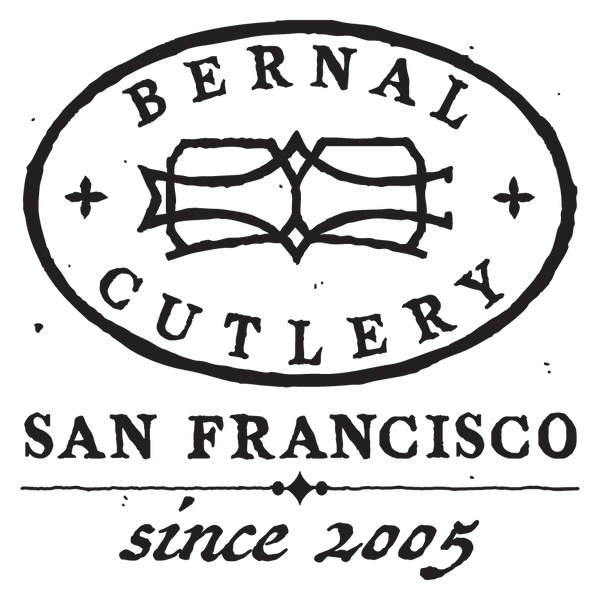-
Currency
-
NEW
- All New Products
- New Kitchen Knives
- New Kitchen Tools
- Latest Vintage
- New Outdoor & Utility
- New Pantry
-
What's in my Basket Series
- Dr. Harold McGee - Author
- Ryo Sakai -Kuma Sushi
- Ian McNemar - Woodworker, Instructor
- Anna Voloshyna - Author
- Jorge Martinex Lillard - Lolo´
- Chris Yang - Piglet & Co
- Griffin Wilson - @cabincorn
- Gabe Rudolph - Gestura Utensils
- Marc Schechter - Square Pie Guys
- Molly DeCoudreaux - Food Photographer
- Geoff Davis - Burdell Soul Food
- Jen and Wes - @crazythickasians
- Josh Donald - Bernal Cutlery
- Kelly Kozak - Bernal Cutlery
- Jessica Sullivan - Poppy SF
- Sylvan Mishima Brackett - Rintaro
- Michael Myers - Film Character
- Ali Hooke - @alihooke
- Bruce Hill - The Chef's Press
- Dylan Carasco - Butcher's Guide
- Spencer Horowitz - Hadeem
-
Japanese Knives
- Ashi Hamono
- Gihei Knives
- Godo Tadaharu
- Hado
- Hatsukokoro
- Hitohira
- Jiro Nakagawa
- Iwasaki Kamisori
- Kaji-Bei
- Kamo Shiro
- Kanehide
- Konosuke
- MAC Knife
- Masakane
- Makoto Tadokoro Marushin
- Mizuno Axes
- Morihei
- Myojin Riki Sesakusho
- Nakagawa Hamono
- Naozumi
- Nigara Hamono
- Sakai Kikumori
- Shigefusa
- Tagai
- Takada no Hamono
- Tanabe Tatara
- Yoshikazu Tanaka
- Tosa
- Tsukasa Hinoura
- Yoshikane
- Wakui
-
Global Knives
- A Wright & Son (GBR)
- Allday Goods (GBR)
- Blenheim Forge (GBR)
- Geo Wostenholm IXL (GBR)
- Ibberson (GBR)
- J Adams (GBR)
- John Nowill & Son (GBR)
- Joseph Rogers (GBR)
- Wood Tools (GBR)
- André Verdier (FRA)
- Au Sabot (FRA)
- Chazeau Honoré (FRA)
- Fontenille Pataud (FRA)
- K Sabatier (FRA)
- David Margrita (FRA)
- Opinel (FRA)
- Eichenlaub Tableware (DEU)
- Friedr Herder (DEU)
- Windmühlenmesser (DEU)
- Florentine Kitchen Knives (ESP)
- Pallares (ESP)
- Helle (NOR)
- Andersson & Copra (SWE)
- Hults Bruks Axes (SWE)
- Kalthoff Axes (SWE)
- Morakniv (SWE)
- Iisakki Jarvenpaa (FIN)
- Zirh (TUR)
- Alma Knife Co. (USA)
- Astral Works (USA)
- Bernal Cutlery (USA)
- Benchmade Knives (USA)
- Dexter Russell (USA)
- Rolin Knives (USA)
- Silverthorn (USA)
- Steelport Knife Co. (USA)
- Tactile Knife Company (USA)
-
Styles
- Bernal Cutlery Collaborations
- Knife Sets
- Carving Sets
- Japanese Kitchen Knives
- Western Kitchen Knives
- Chinese Style Cleavers
- Bread
- Butchery
- Cheese | Charcuterie
- Young Chefs
- Woodworking | Hobby | Craft
- Kamisori Razors
- Table | Steak
- Pocket & Folding
- Fixed Blade, Axes & Outdoor Tools
- Scissors | Shears | Snips
- Left Handed
- The Vault
- Vintage
- Sayas | Guards
- Sharpening
- Kitchen | Cookware
- Tableware | Service
- Pantry
- Accessories
- Deals
- Gift Cards
- INFO
or
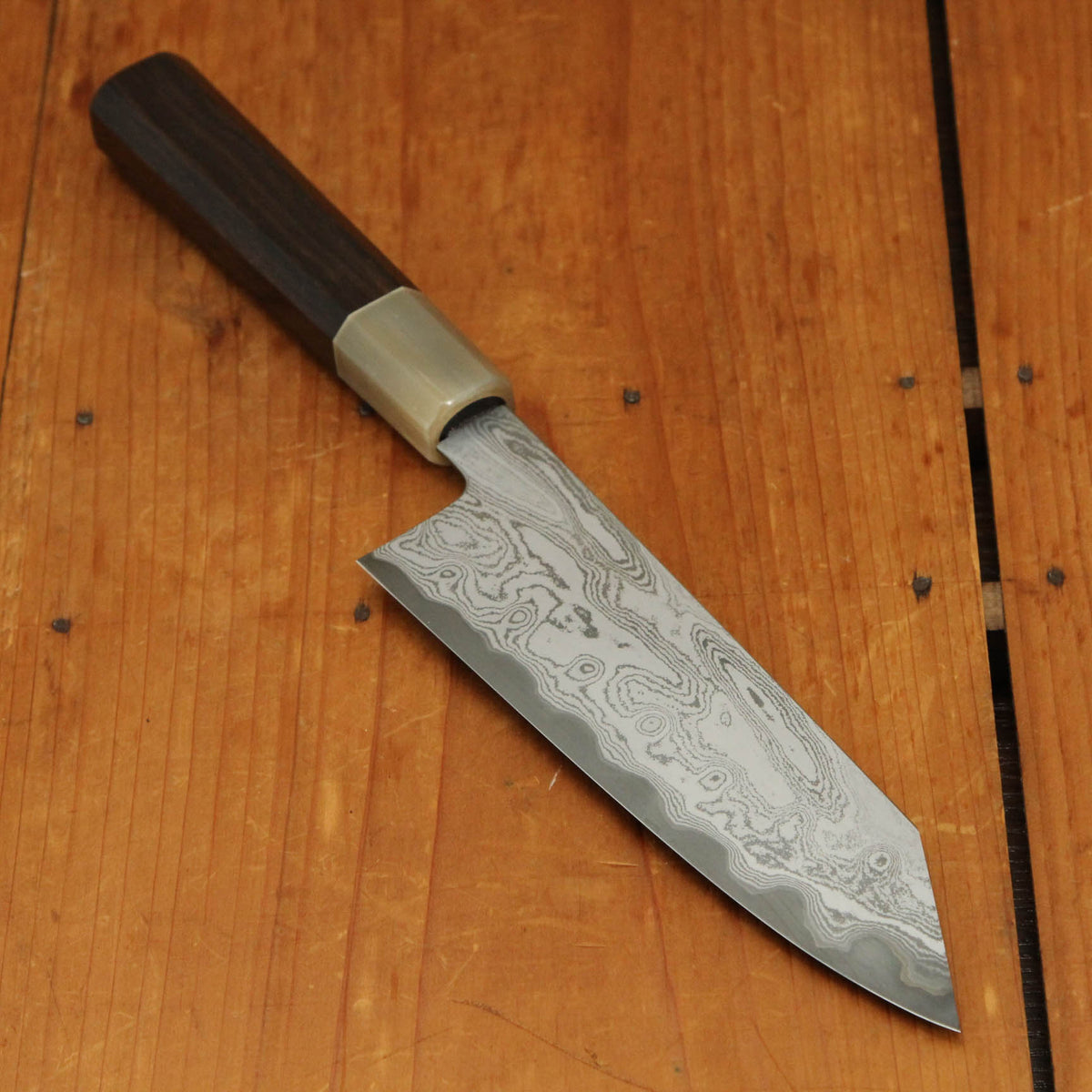
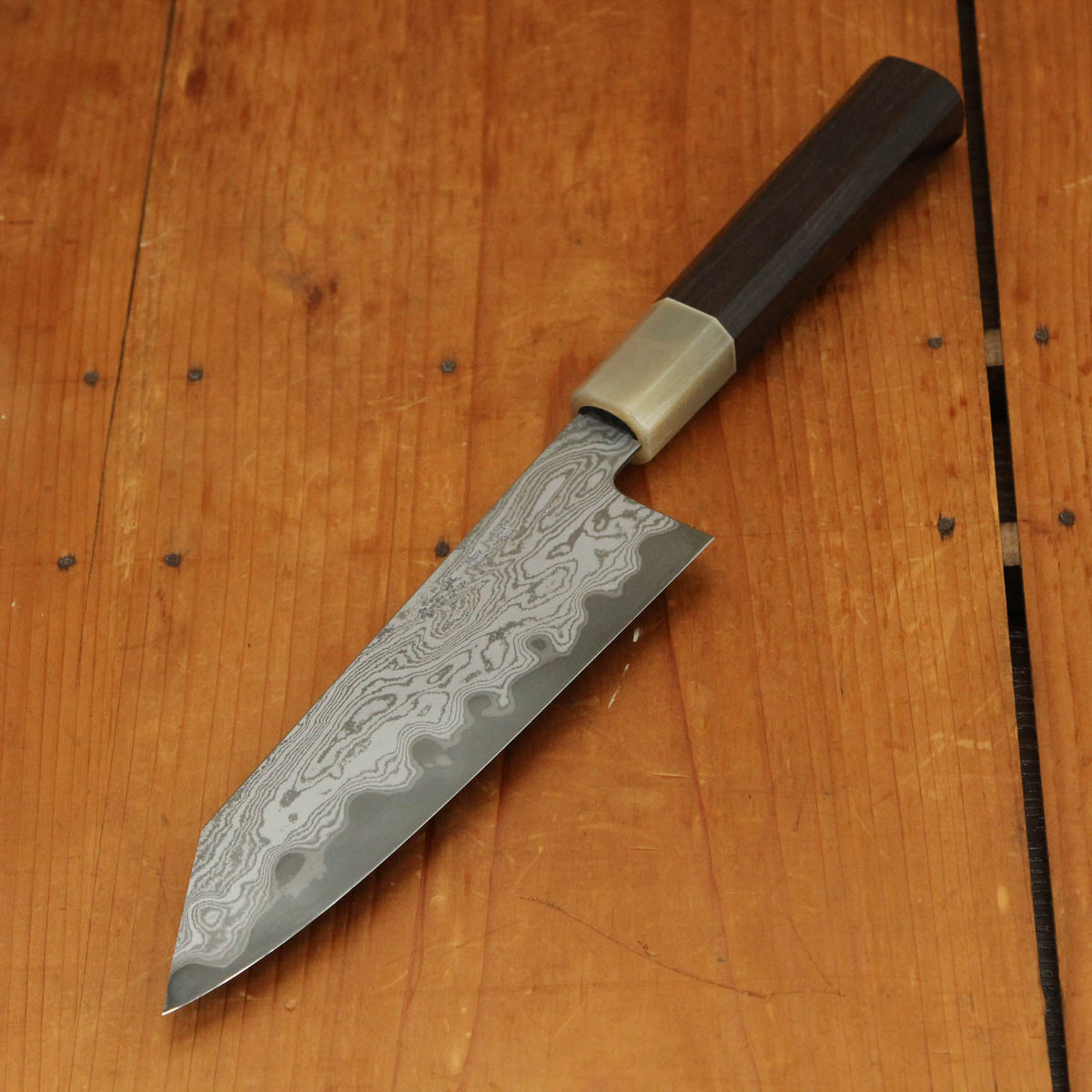
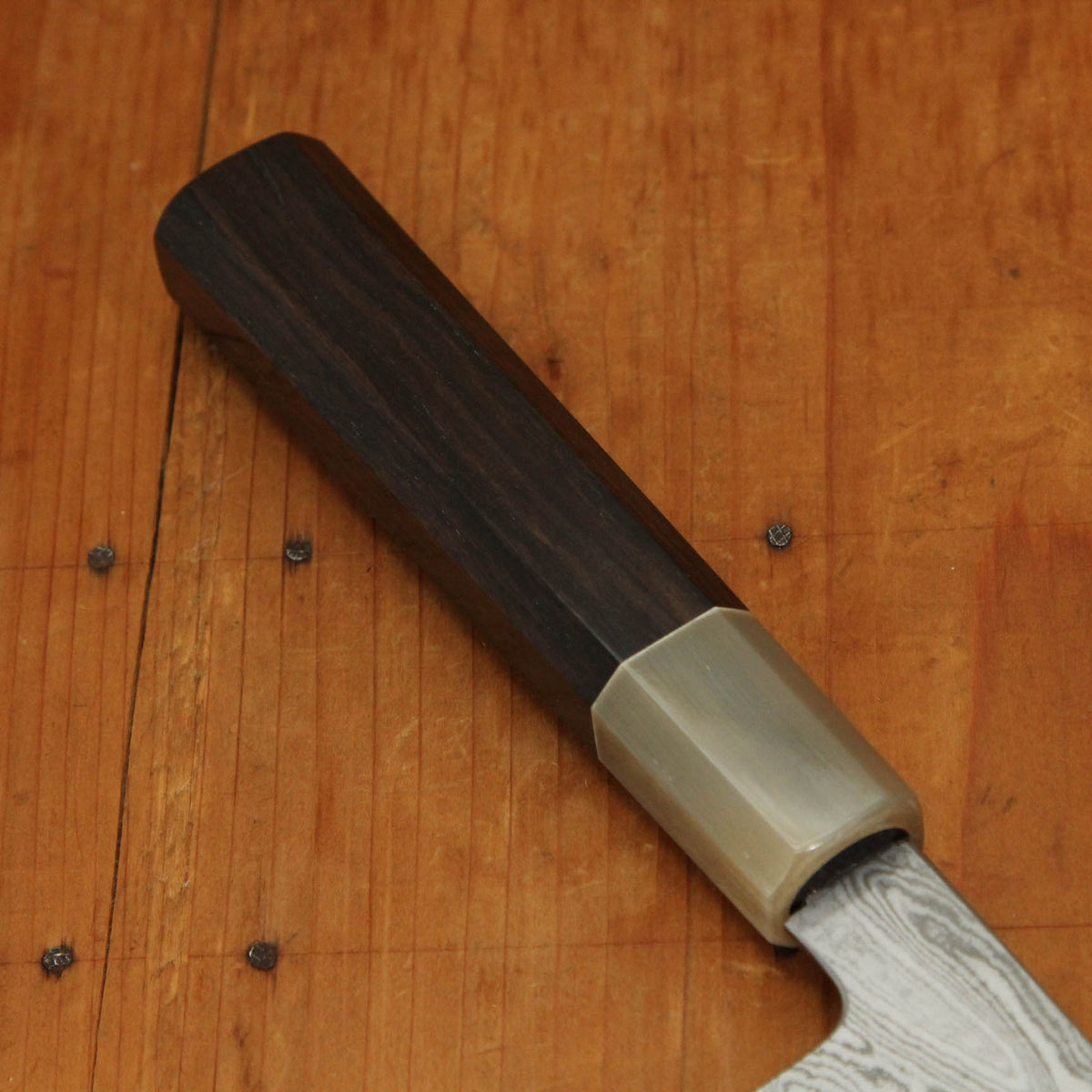
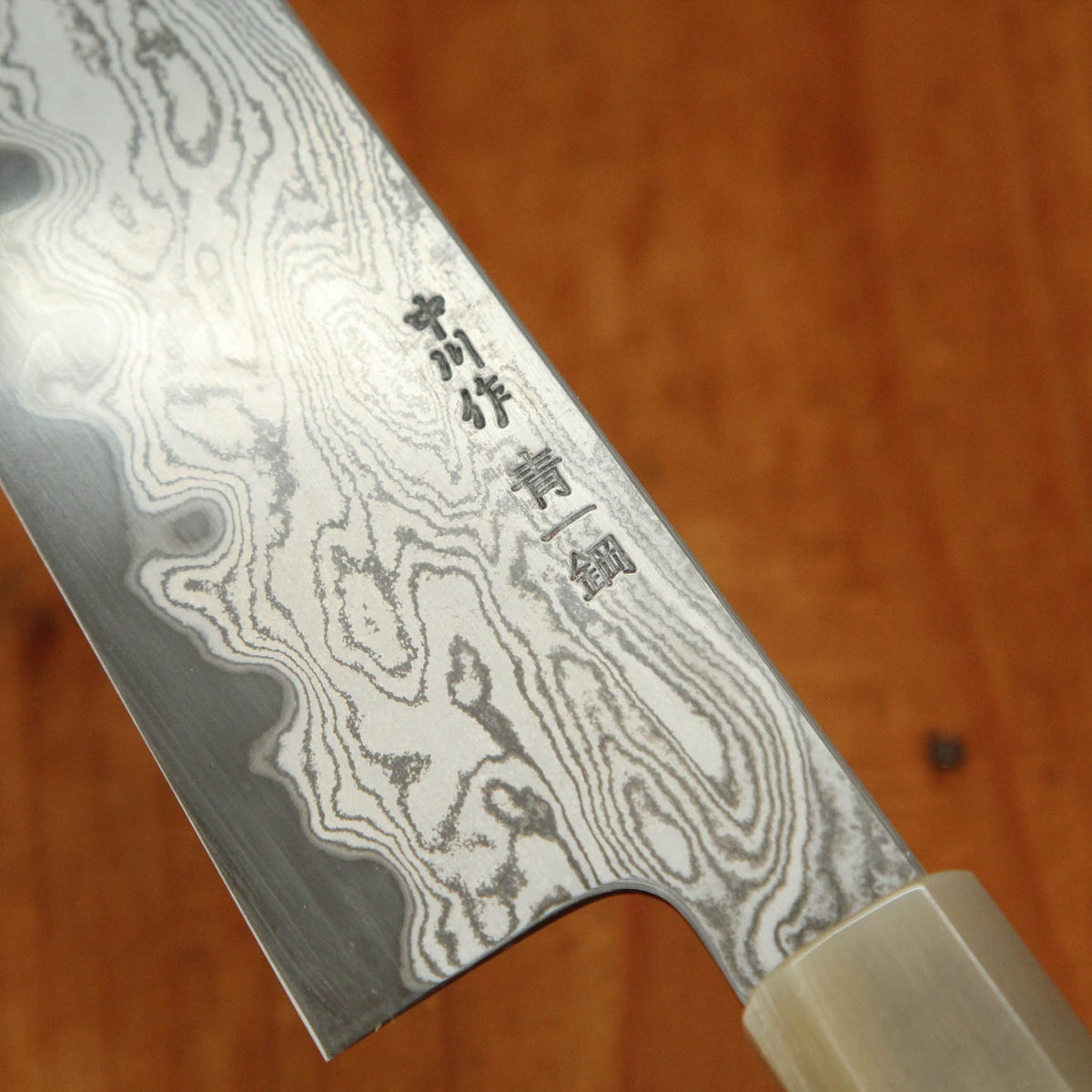
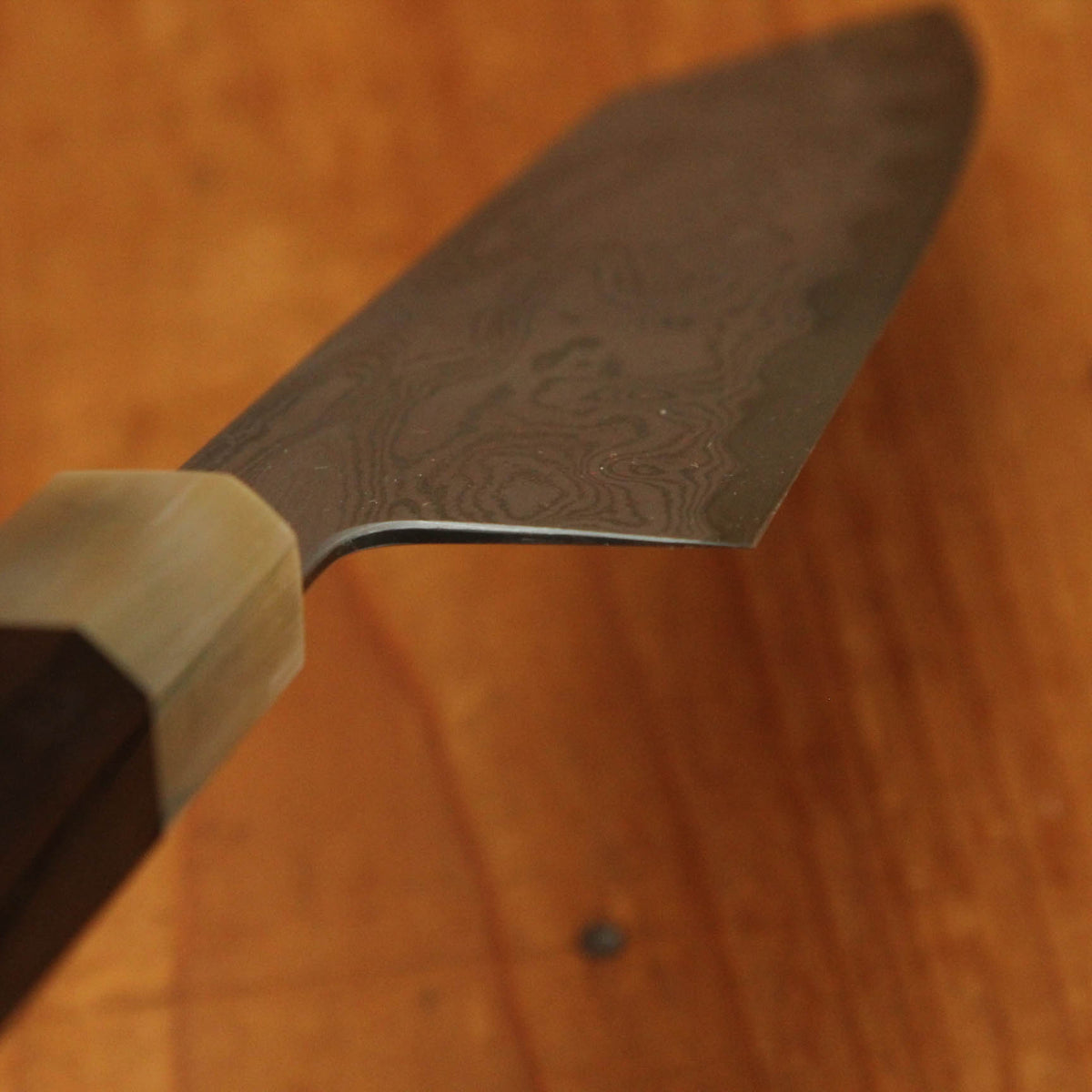
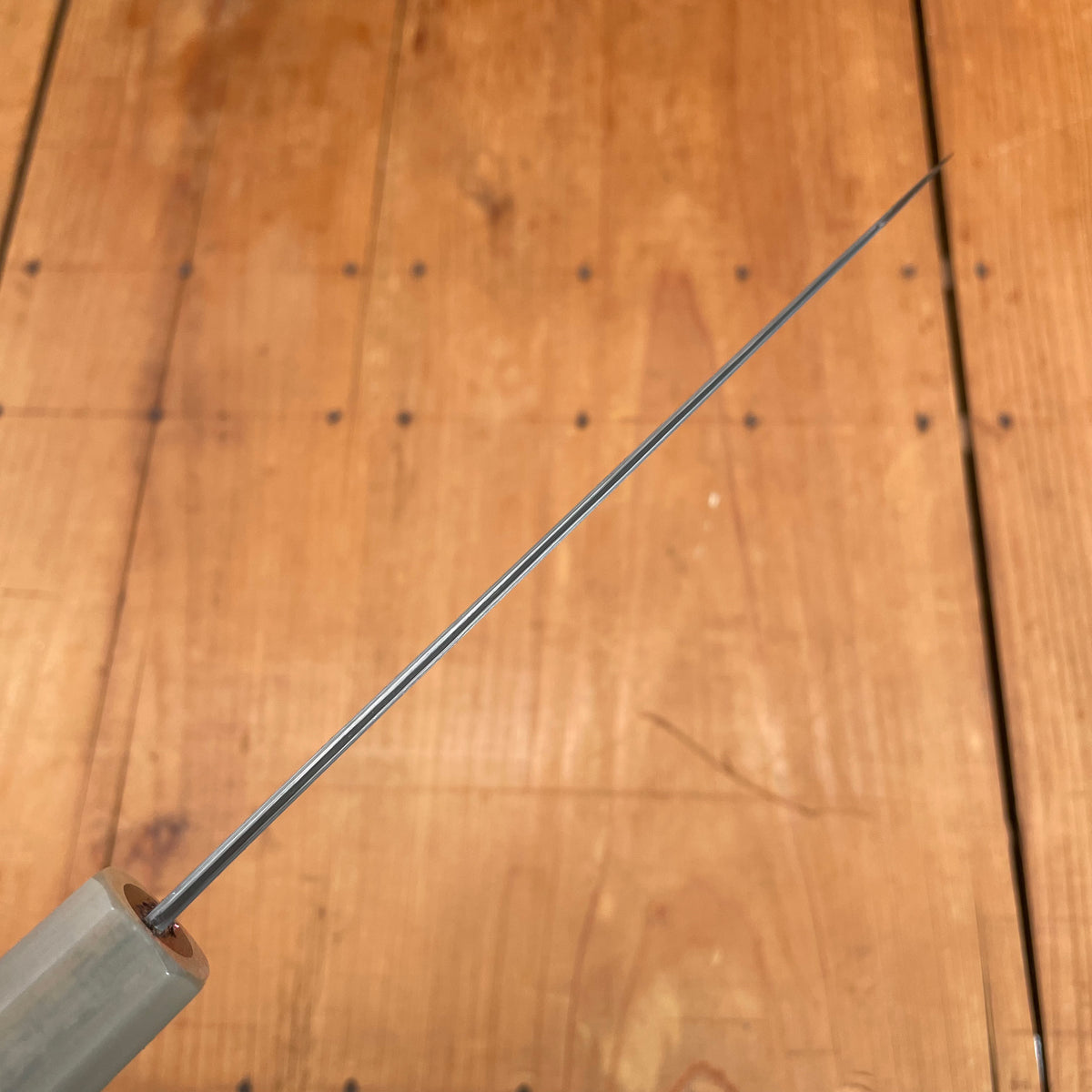
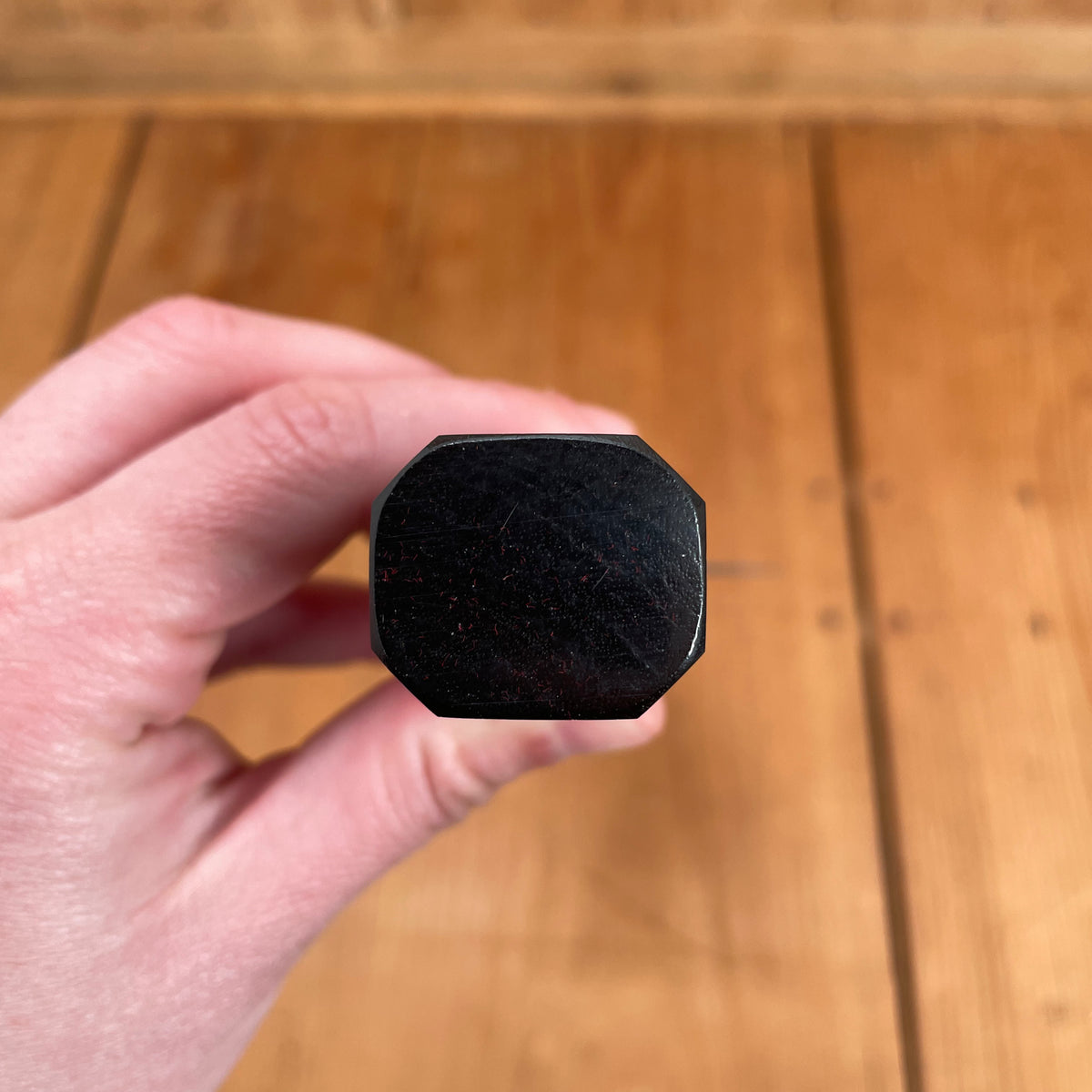
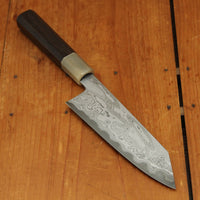
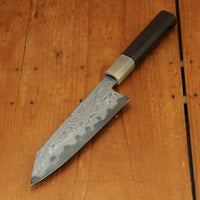
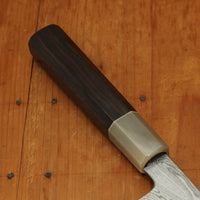
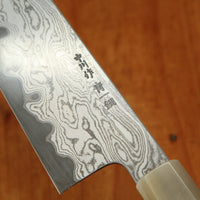
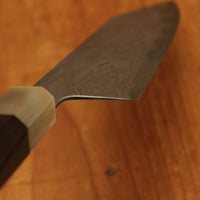
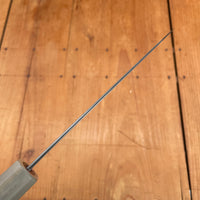
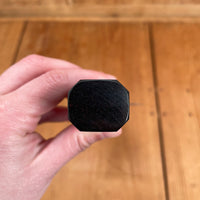
Nakagawa 180mm Bunka Aogami 1 Damascus Dark Etch Ebony Handle
-
Regular Price
-
£469.18
-
Sale Price
-
£469.18
-
Regular Price
-
Sale
Sold Out
-
Unit Price
- /per
- Regular Price
- £469.18
- Sale Price
- £469.18
- Regular Price
- Unit Price
- /per
These have a solid feel with little overall flex but the edge is super thin and ‘nail-going’; it can be temporarily bent with pressure against a fingernail, an old style test for proper thinness on a fine ground blade. While not the thinnest in our stock at the spine behind the edge they are quite possibly the thinnest. They will cut very very smoothly but can be easy to damage if any twisting, lateral pressure or scraping is applied. These are best suited for those already using thin edged Japanese knives and maybe not the best first Japanese knife for someone used to forgiving tougher knives.
Nakagawa-san's knives are characterized by excellent heat control during forging and a very thorough heat treatment. This creates knives that have superb edge formation and edge retention with good toughness.
Super fine convex grinding by Myojin Naohito. Naohito-san became known to us here from his fabulous grinds and finishes on the Konosuke Fujiyama FM knives. We have been consistently impressed with how nicely these fine blades cut and at the quality of his finish work. It is exciting to get more knives finished by this very talented sharpener and now blacksmith as Naohito-san has begun to forge some of his own knives.
Do not leave wet. Hand wash & dry, no dishwasher. Hardwood-end grain or softwood long grain cutting boards are preferred; avoid bamboo and plastic cutting boards.
Recently Viewed
About Bernal Cutlery
We are a full-service cutlery shop offering sharpening services, Japanese and Western culinary knives, vintage knives, outdoor, pocket and craft knives, cooking tools and accessories. We also offer knife skills and sharpening classes, and more.
We are proud to serve kitchen professionals, knife enthusiasts and home cooks alike. Located in the Mission District of San Francisco, California.
